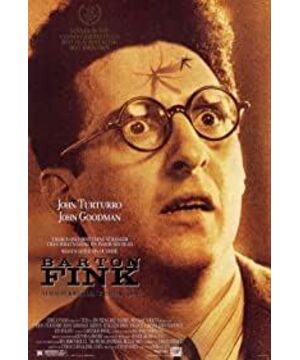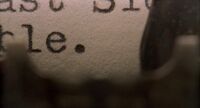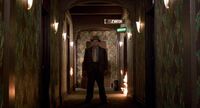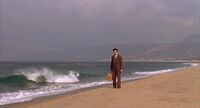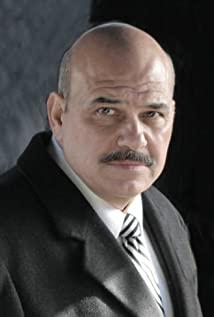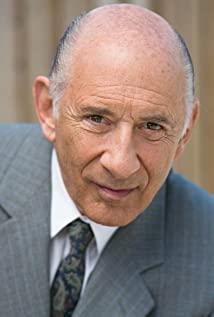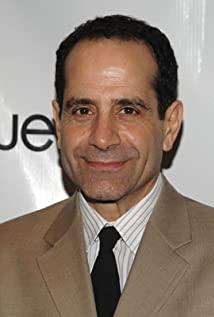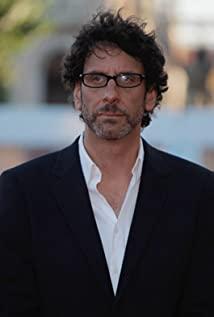There is no doubt that Barton Funk is a great film, filled with a lot of cryptic, obscure, surreal symbolism. For example, hotels, mosquitoes, murals on the walls, peeling wallpaper, the box Charlie left to Barton, and so on. Below I will use these symbols as a starting point to analyze and interpret the character "Charlie".
The first question to answer is: Does Charlie even exist? I read a lot of previous comments on the Internet, and I came to two conclusions. One is that the character Charlie exists. The other thinks that Charlie is a completely imagined character by Patton. I am more in favor of the former point of view. At the beginning of the film, when Charlie and Barton just met, Charlie made a noise that affected Fink's writing, so Fink called the front desk, and Chat acted as Barton and Charlie. A bridge between these two characters. Then Charlie came and knocked on Fink's door, and the two met for the first time. In this part, in the relationship between the two, there is Chat as an intermediary, or the identity of a witness. That is to say, in addition to the subjective perspective, there is an objective evidence for this. So based on that, I came to my conclusion that the character Charlie is real. At the same time, among the existing viewpoints, there are still others who believe that the entire hotel is Barton's illusion, so Chat's existence does not prove anything, because even himself is only Barton's illusion. But I don't think the hotel can be seen as Patton's vision. Because the hotel is the scene that carries the development of all events, if the hotel also becomes an illusion of Patton, then whether it is killing Audrey or Patton's writing. All of this becomes meaningless.
After Charlie's initial meeting with Patton, Charlie left Patton's room. Here, I noticed an interesting detail. The wallpaper in Barton's room started to peel off, and sticky glue was all over the place. This symbol, in my opinion, represents the beginning of Patton's imagination, and it also symbolizes that Patton's rational world is peeling off step by step. The previous paragraph of the article has already discussed that the character Charlie is real. However, he exists both in the real world and in the field of consciousness of Barton. That is, Patton used his writer's mind to imagine Charlie, a man who existed in real life. In the second meeting between Barton and Charlie, Barton visits Mayer at the beginning, only to get to know Audrey, and then Barton returns to the hotel and uses pushpins to fix the fallen wallpaper. Then he leaned against the wall and heard the woman next door calling the bed. Here, the peeling wallpaper reappears, suggesting that the scene here is actually Barton's fantasy. Meanwhile, Charlie entered the room. But this time, Charlie didn't knock on the door when he entered Barton's room. This also means that the dialogue between Charlie and Barton here exists in Barton's conscious world. Here, I think, Barton fantasized about the woman next door screaming because he fell in love with Audrey at first sight.
In the second meeting between the two, there is also an important scene, which is the plot of Charlie teaching Patton the basic movements of wrestling. In fact, here is the most ingenious arrangement, which not only shows the contradiction, confusion and struggle in Barton's heart at this time. The Los Angeles that Charlie represents is also Hollywood. It can also be said that he is Patton's only consolation and dependence in Hollywood, but this consolation and he threw Patton to the ground. He has become the key for Patton to open the door to Hollywood, and it also symbolizes that the balance in Patton's heart has gradually tilted toward Hollywood, his yearning and pursuit for stage plays, Broadway, and art. Is gradually surrendering to money and desire.
Charlie's third meeting with Patton was after Patton's lunch with Mayer and Audrey, and I think in the film, Mayer may actually be an insinuation of Patton's future. Talented, successful, and respected young, they even fell in love with the same woman, Audrey. However, after entering Hollywood, Mayer became a maniac drinking all day. At the same time, he was also the first writer Patton met in Hollywood, and Patton saw that Mayer might be his future. So, he arranged his third meeting with Charlie in his own mind. Also, in this meeting, Charlie didn't knock on the door, he entered the room and started talking to Patton, how bad it was today. This is not exactly the same situation as Patton himself. Charlie and Barton were talking about the voice of the woman next door calling the bed. Barton asked very curiously, how did you know that. This echoes the sound of the woman calling the bed that Barton heard before. Then, in the conversation between the two, the originally intact wallpaper suddenly fell off. At this time, Barton said a very interesting line: "I think it is because it is too hot to melt the glue." In my opinion, Hot refers to The only thing is that the living environment of Hollywood has made Barton's psychological pressure increasing. Here, the director has externalized such oppression, so the heat in the film has also become an extremely important symbol.
When Fink found Audrey dead on the bed, he let out a tragic scream. At this point, Charlie knocked on Fink's door and asked what happened. Therefore, this section of Charlie is real and real life. But later, when Funk calmed down and went to find Charlie, he switched back to Funk's imaginary world. When Fink woke up, he found Audrey tragically dead on the bed, and he panicked. So he fantasized, this is his only spiritual sustenance in Hollywood, to help him deal with the body. When I just watched the movie, I thought that Charlie killed Audrey, but Charlie alternately exists in two time and space, and no one can kill Audrey quietly by Fink's side Li, except himself.
Next, Charlie knocked on Fink's door one last time to bid him farewell. Charlie left Hollywood, and Funk's last solace and dependence disappeared. Charlie handed Funk a box containing some of Charlie's personal belongings, but the box was never opened until the end of the film. After Charlie was gone, Funk was completely engulfed in Hollywood, so he wrote his first screenplay, a wrestler battling his soul. He considers himself to have accomplished the greatest work of his life, and he compares himself to a creator. "God causes him to perish, he must first make him mad." Funk's madness in the ballroom symbolized the omen of his demise. The questioning of the two policemen had actually made Funk realize that he had killed Audrey and Mayer. It's just that he was still reluctant to believe this fact subconsciously, so he took out the imaginary Charlie as his shield. When the police came to the door, Funk's world of consciousness went to the top where it began to crumble. The room was getting hotter and hotter, Charlie came back, and the hotel even caught fire. At this time, the 6th floor of the hotel also symbolized Funk's world of consciousness, and the fire spread more and more. Funk kills two detectives at the hands of his imaginary Charlie. In the end, in the conversation between Fink and Charlie, Fink is completely defeated by the Hollywood system, the system, that he has always preached the art of creating common people. But Charlie pointed out to him sharply: "because you never listen." He abandoned what he should insist on as a writer,
so "Charlie" stayed at the scene of the fire, maybe died, or maybe hid deep. Fink left with his script and box, turned into a Hollywood writing machine. At this time, when World War II broke out, the boss of the Temple Film Company praised Funk as the greatest work in his life and criticized it for nothing. Ben said, you are not a writer, you are just a waste. Fink left with the box and came to the seaside exactly like the frescoes in the hotel. Here, Fink may be able to see the wide and boundless beauty of the coastline, or he may only be like a seabird flying in the sky, falling to the bottom of the sea where there is no light.
View more about Barton Fink reviews


